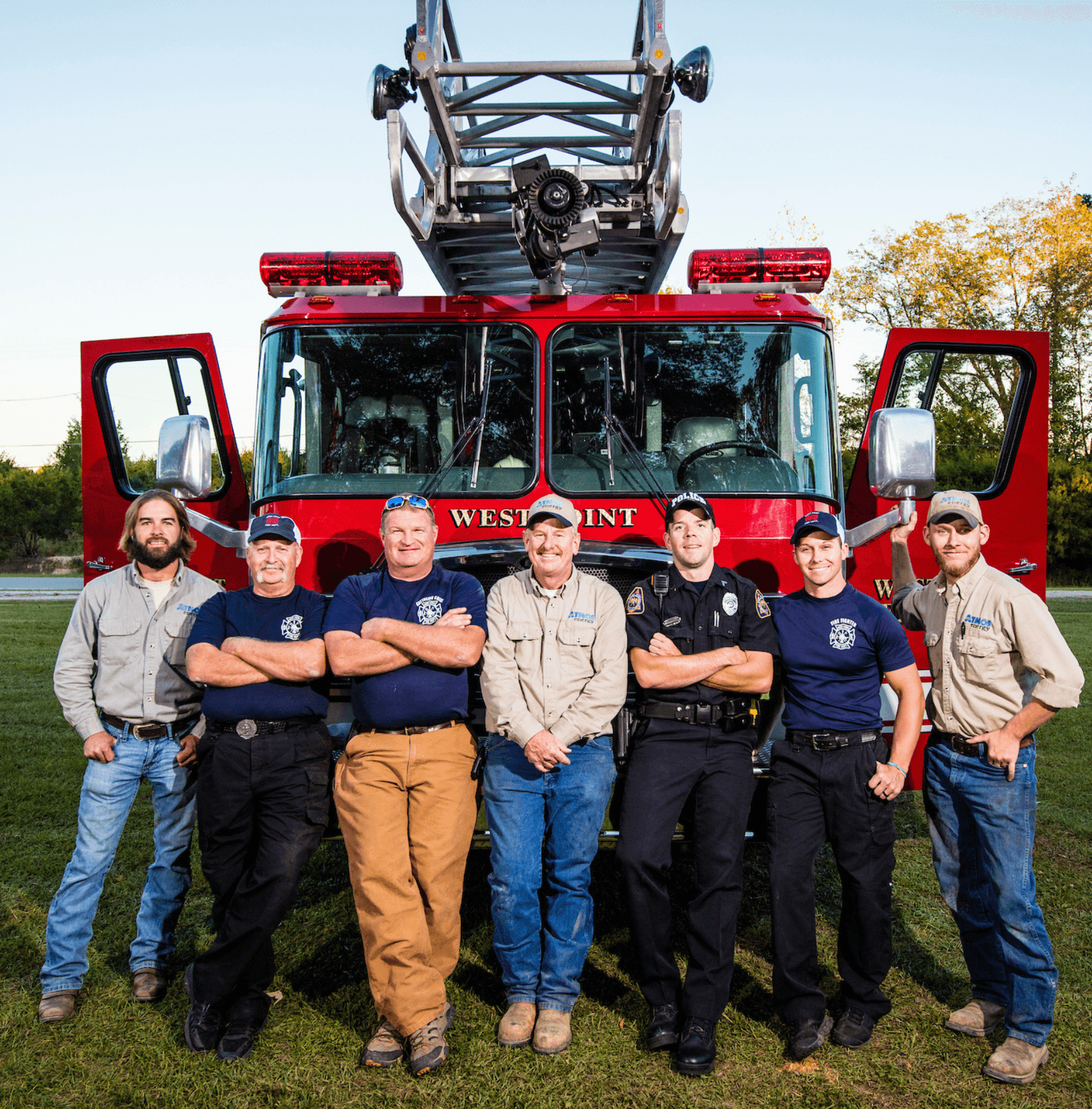RECENT SEARCHES

Safety Information
Atmos Energy collaborates with first responders in over 1,400 communities where we provide natural gas service. We operate more than 77,000 miles of pipeline across our eight-state area. Our pipe ranges in diameter from one-half inch polyethylene lines that deliver natural gas to homes, to steel transmission lines that are up to 36-inches which transport billions of cubic feet of gas across long distances. We distribute natural gas around the clock to more than 3.3 million customers.
Natural Gas Workshops
Because safety is at the core of everything we do, we conduct natural gas safety workshops for city officials, fire departments, police and other first responders. The purpose is to provide valuable natural gas safety training for an emergency response situation. The relationships and communication networks developed during these trainings will enhance the safety of our communities for years to come.
AEGIS also offers additional training resources for first responders.
Course Overview and Content Examples
This training workshop not only provides useful information on natural gas safety and emergency response but also supports Atmos Energy’s partnership with the fire departments and other first responders in the communities where we all live and work.
Training Objectives
Upon completion of this workshop, participants should be able to identify:
- basic uses and properties of natural gas
- carbon monoxide generation, causes, and indicators
- natural gas distribution basics – safety, systems, facilities, and materials
- natural gas migration and related testing – how this affects evacuation and ventilation measures
- Atmos Energy Incident Command System (ICS) – protecting everyone through use of engineering controls and coordinating with first responders when responding to emergencies, and
- how we can work together every day to promote natural gas safety.
Real World Relevance
This workshop answers the following questions for first responders in the field:
- How do the properties of natural gas (and how it’s distributed) determine actions taken on site at an emergency involving natural gas?
- What safety procedures do Atmos Energy employees follow to protect first responders, as well as citizens and fellow employees?
- How can we work together, day-to-day, to prevent natural gas emergencies?
Static Electricity Demonstration
Several demonstrations are included in this workshop. For example, when talking with several fire departments and other first responders, we found that many are unaware of the static electricity conducted through our pipe systems, so we use a static board to light a fluorescent bulb, demonstrating this ignition source and introducing Atmos Energy’s use of engineering controls to protect everyone onsite at an emergency.
Gas Appliances, Ventilation, and CO Video
Several short, relevant videos are also included in this workshop. The Appliance Combustion Air video, for example, shows some of the factors that affect combustion air and venting in homes with natural gas appliances. Instructors use this video to initiate a large-group discussion of:
- how weather proofing can affect ventilation of natural gas appliances
- what Atmos Energy looks for on carbon dioxide (CO) calls, and
- how we want to be contacted on every leak call and whenever CO is detected.
ICS Scenario Examples
In addition to several group discussions, this activity provides smaller groups of participants an opportunity to discuss and draw out their responses to real-world ICS scenarios. This not only serves as an engaging review of the information covered in this workshop, but it also gives first responders a means to share what they’re experiencing in the field. This further supports communication and coordination to improve local Atmos Energy emergency response team interactions.
Natural Gas Safety Information
Please take a moment to learn what to do if you detect a natural gas leak, the importance of calling 811 before you dig, and other helpful natural gas safety information.
Atmos Energy is engaged in regulated utility operations. Atmos Energy Corporation. All Rights Reserved.